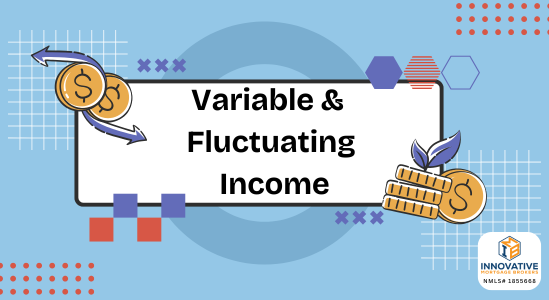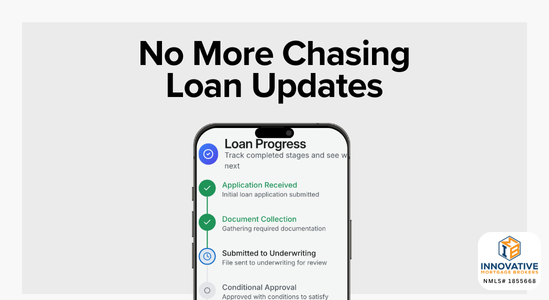Our new portal lets you securely check progress, milestones, and next steps anytime you want…
Understanding Mortgages with Fluctuating Income
How Buyers with Commission, Overtime, or Irregular Hours Can Still Qualify
If your paycheck changes from week to week, maybe because you earn commission, tips, or work variable hours, qualifying for a mortgage might feel confusing. But the good news is, lenders deal with these situations all the time. The key is knowing how they evaluate your income and what you can do to present your numbers in the best possible light.
What Counts as Fluctuating Income?
Fluctuating or variable income refers to earnings that aren’t the same every pay period. Common examples include:
- Hourly jobs with inconsistent hours
- Overtime pay
- Bonuses
- Commission-based pay
- Seasonal or part-time jobs
- Tip income
If this sounds like you, don’t worry, you’re not alone, and it doesn’t disqualify you from getting approved. But it does mean the lender needs to do a bit more work to calculate your average monthly income and make sure it’s stable enough to qualify.
How Lenders Evaluate Variable Income
Whether you’re applying for a conventional, FHA, VA, or USDA loan, underwriters generally follow three key principles:
- Consistency of receipt – Do you have a 1- to 2-year history of receiving the income?
- Likelihood of continuance – Is the income expected to keep going for at least 3 more years?
- Income trend – Is the income going up, staying steady, or going down?
These three questions help determine whether your income is “qualifying” and can be used to calculate how much home you can afford.
Different Rules by Loan Program
Each loan type has slightly different rules when it comes to variable income:
Fannie Mae and Freddie Mac
- Will usually require a 2-year history, though in some cases 12 months is acceptable.
- If your income is stable or increasing, it can be averaged.
- If it’s declining, the most recent (lower) amount may be used, or it might be excluded.
FHA Loans
- Generally require a 2-year history as well, especially for overtime and bonuses.
- FHA allows you to average the last 12 months if your hourly rate recently increased.
- Declining income cannot be used.
VA Loans
- Tend to be more conservative.
- Require a 2-year history for bonus, commission, or overtime income.
- Income that has declined won’t be considered qualifying, though it might be used to offset certain debts.
USDA Loans
- Similar to VA, they require a 2-year history and conservative trending analysis.
- Stability and likelihood of continuance are key factors.
Example Scenarios
Let’s say you’re a nurse with changing overtime hours – If you had medical leave last year but your income has since stabilized, FHA might be the best option because it allows for a 12-month average that reflects your current earnings.
Or maybe you’re a construction worker whose hours vary due to seasonal factors – With proper documentation (like a letter from your employer or historic earnings patterns), you can often show that your income is reliable even if it fluctuates.
Tips for Applicants with Variable Income
- Gather your documents early – This includes W-2s, paystubs, and any letters from your employer.
- Track your hours and income – A clear paper trail helps underwriters understand the “story” behind your income.
- Understand your trend – Know whether your income is increasing, steady, or decreasing.
- Talk to a mortgage broker early – We can help determine the right loan type and strategy based on your income structure.
Conclusion
Having fluctuating income doesn’t mean you can’t get a mortgage. It just means the process may involve a few extra steps, especially when it comes to documentation and calculations.
At Innovative Mortgage Brokers, we work with over 30 lenders and are familiar with how each one views different types of income. We know what underwriters are looking for and how to help you present your income in a way that gives you the best chance at approval.
If you have questions about qualifying with variable income, feel free to reach out. A quick conversation could save you a lot of time and open the door to your next home.





